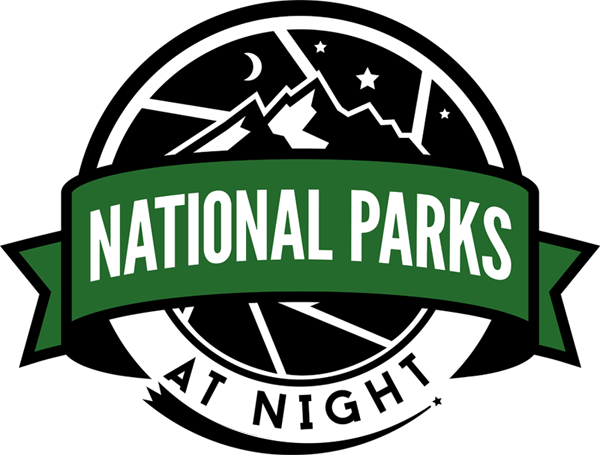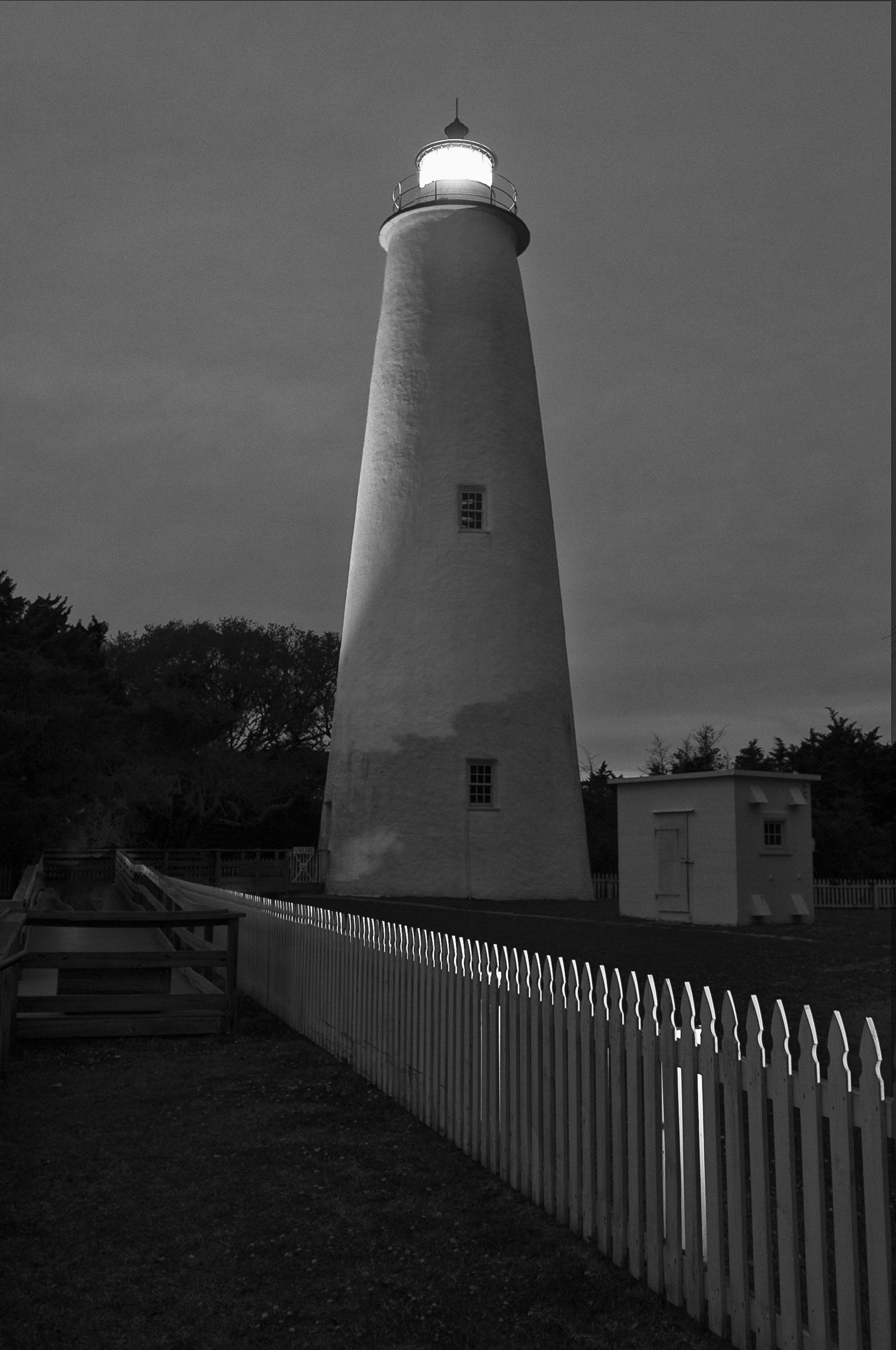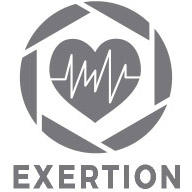Lighthouses of the Outer Banks
Cape Hatteras, Bodie Island, Roanoke Marshes, Currituck Beach, Ocracoke. The Outer Banks has some amazing lighthouses to photograph, all within driving distance along some of the most beautiful shoreline in the country. Come photograph these sentinels of the sea—at twilight, night, under moonlight and with the Milky Way rising behind.
Workshop Details
June 22-27, 2022 — Completed
This is a 5-night, 6-day workshop. Your adventure begins on the morning of Wednesday, June 22, and ends after a final slide show on the afternoon of Monday, June 27.
$1,995 + applicable taxes. Register below.
Skill level
Intermediate and above. Participants should have a firm grasp of the basic principles of photography and of their cameras, and have a comfortable understanding of night photography fundamentals.
Group size
14, with 2 instructors — 7:1 ratio
NPS website
Cape Hatteras National Seashore
Workshop Leaders
Registration
This event has passed. Thanks for your interest!
| • Deposit of $600 is required to reserve your spot at the workshop. |
| • Balance of $1,395 is due on March 24, 2022. —> Pay balance here. |
| • You may choose the “Pay in Full” ticket if you desire to pay all at once. |
| • Last day for a cancellation request is March 23, 2022 (see cancellation and refund policy). |
| • The workshop fee does not include lodging, food, airfare, or transportation to the Outer Banks or to our nightly shoot locations. |
The Outer Banks Lighthouses Experience
Lighthouses have long been a nostalgic subject for the photographer, standing sentinel against time and the relentless ocean, as beacons of both danger and hope, firmly planted in the sands of seafaring and Americana.
But photographing them at night? Aye, them seas can be choppy.
To help navigate those challenges, we’re heading to North Carolina’s Outer Banks, home to five amazing lighthouses to photograph both day and night, including one of the most famous in the U.S., the Cape Hatteras Lighthouse (above).
This workshop will have both field and classroom instruction, as well as daytrips to the lighthouses and other areas of interest in the Outer Banks. We’ll explore them, we’ll learn about them, we’ll climb them, we’ll photograph them at night.
If you’ve never photographed lighthouses after dark, this workshop will give you the confidence to take on the challenge; if lighthouses are a common theme of your work, this will offer new ideas for mastering varied approaches. And regardless of your status as a lighthouse photographer, this will be an adventure to remember.
What You Should Know
This workshop caters to knowledgeable photographers with an intermediate or higher skill set. Participants should have a firm grasp of the basic principles of photography and of their cameras, and have a comfortable understanding of night photography fundamentals.
If you would like to attend this workshop but are unsure whether you have adequate night photography skills, we can offer pre-workshop tutoring to get you ready for your adventure with us. Alternatively or additionally, a few of us have written books that may be productive pre-workshop reads.
What You Will Learn
At this workshop we will walk you through the basics and the advanced methods of photographing lighthouses in the dark. From tricky exposures, to challenges with perspective, to issues with timing and more. Different types of lighthouses come with different sets of advantages and hurdles, and Chris and Lance will go over each.
TOPICS COVERED WILL INCLUDE:
strategies for photographing lighthouses with fixed, flashing and rotating beams
dealing with difficult exposures
balancing bright highlights with twilight
image blending
preventing and correcting perspective issues
using PhotoPills to help plan a lighthouse photo
and more …
At night, participants can stay out shooting as long as they, or their camera batteries, hold out. While in the field, the instructors will demonstrate their own techniques and will work with participants one-on-one to make sure everyone gets the most out of the workshop. Our locations have generous room to explore, so everyone will be able to spread out and not get in one another’s way. Each participant will have the opportunity to work one-on-one with Chris and Lance in the field.
We do not tell our attendees what to photograph, and won’t line you up in a row to all shoot the same thing (unless it’s helpful to get some people on track). Instead, we encourage you to use what you have learned to create your own unique images, and to let us guide you through the process should you desire. We do not teach you to do what we do, but rather how to develop your own night vision.
Night Conditions
Logistics & General Info
Travel
The Outer Banks is relatively easy to get to, though it does require a bit of time in the car (unless you fly in a private plane to one of the two small airfields on the islands). If you are interested in carpooling or sharing a rental car, let us know and we will try to connect you with another participant looking for the same. You are responsible for arranging and paying for your own transportation.
Nearby Airports:
Norfolk (ORF) — 3 hours from the mid-Outer Banks
Raleigh-Durham (RDU) — 4 hours
Richmond (RIC) — 5 hours
closer local/regional airports : DUF, FFA, MED, NC4 (limited flight options)
Lodging & Food
We are planning on staying seaside in the mid-Outer Banks, away from the tourist areas and closer to the more southern lighthouses. We will be in touch with lodging info and a group code when they’re available.
There’s not as much food in this part of the Banks, but some excellent mom-and-pop places do dot the area. Lots of seafood and a little bit of barbecue. We’ll also have the opportunity to eat meals in areas with a wider selection of restaurants on our daytrips.
We encourage eating two meals per day—a good late breakfast and a great late lunch. When on the night shoots, you may wish to bring snack food or a sandwich and plenty of water.
You are responsible for arranging and paying for your own meals and accommodations.
Weather
It’s summer in the Carolinas, albeit at the shore. Expect daytime highs in the 80s F, nighttime in the 60s.
Recommended Attire
Shorts or jeans or trail pants, short-sleeve T-shirts for day, long-sleeve T’s and sweatshirts for night use, and a light- or medium-weight jacket. Waterproof hiking shoes are a good idea, as we’ll be working around water. Also bring rain gear; we will shoot if it rains, because … well, it’s amazing.
Exertion Level
The exertion level of this workshop is Easy to Moderate. (See more about our classifications.)
All of the nighttime shoot locations are close to the cars—easy access, easy to move around on flat ground. In Ocracoke we’ll be walking the village, but even that is flat and easy.
The only challenge would be when we make our daytime visits to the lighthouses. Three of them are targets for climbing to the top, affording amazing views—but, ya know, requiring lots of steps to get up there. You are, of course, free to sit out such climbs and explore the grounds.
Other than that, no long hikes, but you should be comfortable carrying your own equipment over uneven ground in the dark.
Additional Information
There’s a chance of some mosquitos in early evening if the breeze isn’t blowing, but there are ways to mitigate that.
Please read our FAQs section for more information about skill and gear requirements, and other information that pertains to all our workshops.
If you have questions, please contact us—we're happy to talk it over with you.
Chasing lights ...
“In my younger photography days I became enchanted with photographing lighthouses, an itch that still grabs me whenever I see that one is nearby”
The Outer Banks is a magical place. I first visited there in my late 20s. I loved the landscapes and seascapes and the feelings they inspire. For 15 years I knew I wanted to return alone for photography, an opportunity that became easier to come by when I moved to North Carolina a few years ago.
I made a springtime visit to the area, arriving just as twilight was falling over the seascape. My first stop? Bodie Island Lighthouse. In my younger photography days I became enchanted with photographing lighthouses, an itch that still grabs me whenever I see that one is nearby—especially at night.
I photographed at Bodie Island, then moved down to Cape Hatteras Light, which every American knows by sight, even if they don’t know its name or that it hails from these shores. Photographing both in the same moonlit-kissed, starry night was an almost mystical experience. You can’t stand at the bottom of these monuments to maritime, watching their lights stretch to far-off horizons, without wondering about all the decades they have stood while protecting and saving lives at sea.
Nights in the Outer Banks are magical, particularly when you stand by the ocean, watching waves roll in from distant shores, hearing them rush onto the sand and toward your feet. The stars shine, the wind whispers. I’m always looking forward to returning once again.




































